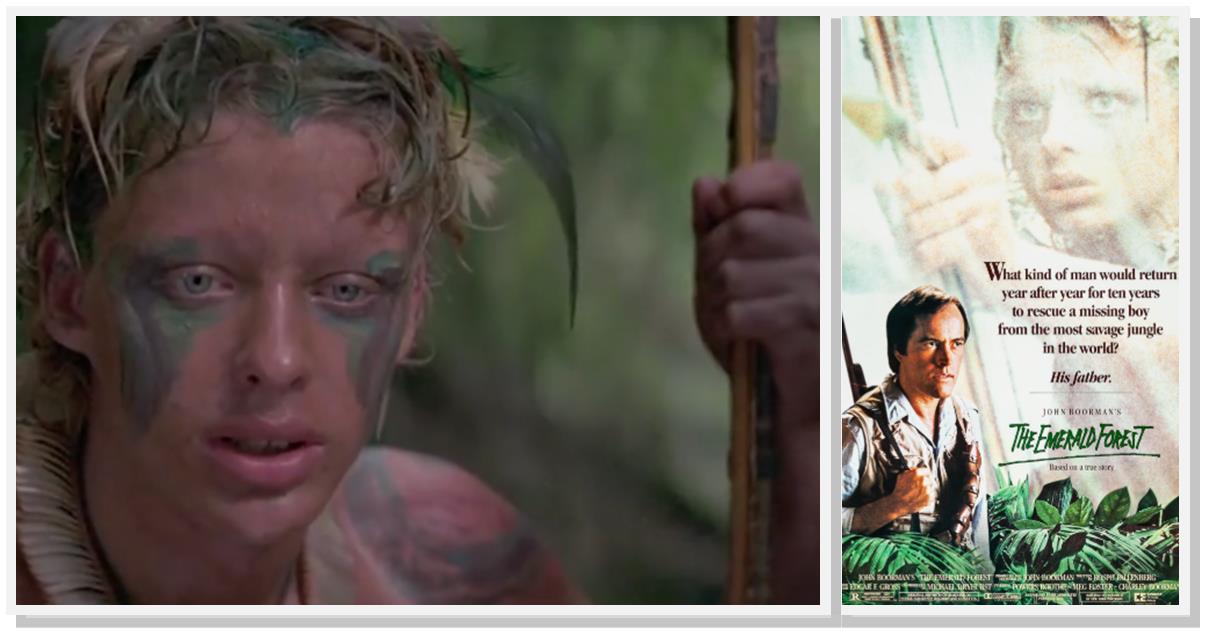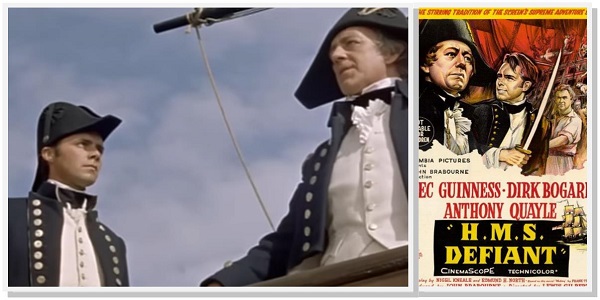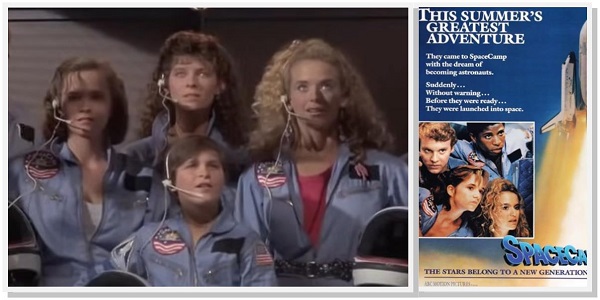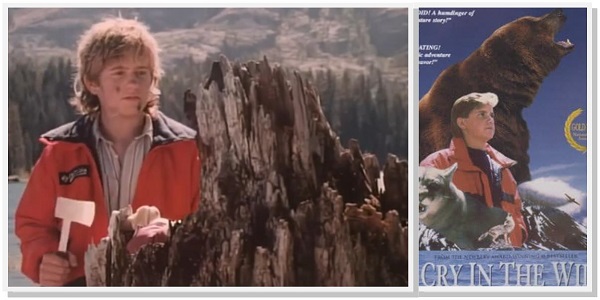Watching a movie with most of the dialogue in a foreign language without English subtitles so that the words are not literally understood isn’t a desirable viewing experience. But don’t be surprised if the movie still not only made sense but was moving enough to earn viewer’s appreciation. John Boorman’s The Emerald Forest is such a contribution to cinema featuring an exotic culture.
Allegedly based on a true story (or stories), the movie follows the quest of a British father Bill Markham (Powers Boothe) whose little son Tommy (William Rodriguez) is stolen by a native Brazilian tribe who consider themselves “invisible.” Tommy is raised as Tomme (Charley Boorman) and becomes a young adult, seen as the tribe’s future leader, while Markham renews his search for him. While the father and son meet and recognize each other, they must fight together against the “fierce” tribe that is out to get Tomme and his adopted family.
The Emerald Forest has English dialogue where needed realistically and native language when showing Tomme’s life as the young adult, which is most of the movie’s runtime. Boorman’s choice of languages pays in that it makes the scenes as well as the characters believable.
It’s not the plot that keeps the interest of the viewer, though an allegedly true story of a father losing a son to what would be called uncivilized people generates the initial interest. The most striking quality of The Emerald Forest is the cinematography that highlights the life as our human ancestors experienced in the nakedness of nature. The jungle adventure with breathtaking shots of life around water, vegetation, and rocks is augmented by the right dose of ethnic exploration with a psychedelic touch.
The dramatic part of the movie is split between the characters of Markham and Tomme with the latter appearing the preferred choice of the filmmakers. Markham’s story takes the backseat when the audience is introduced to Tomme coming of age in his adopted tribe. The emotions of the father-son pair on reuniting and separating again are visible and touching. Boothe’s acting talent shows in those scenes. The message stays with the viewer as the native tribal music lets it sink in the heartbeat.




